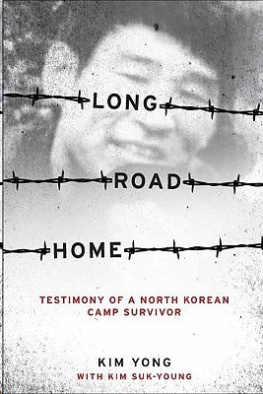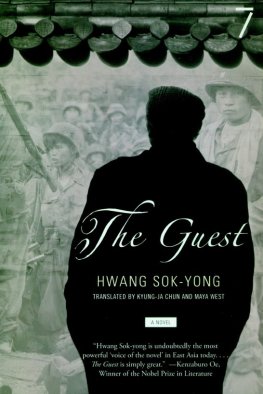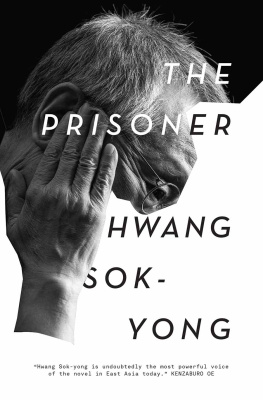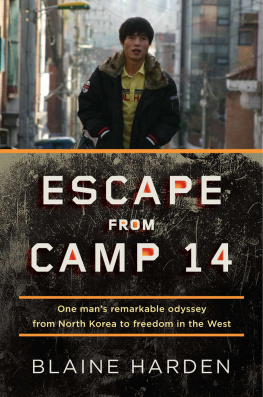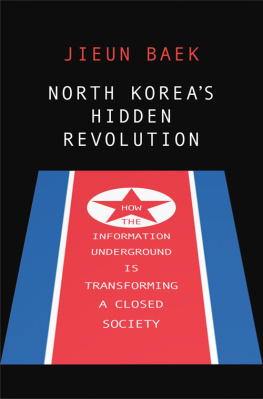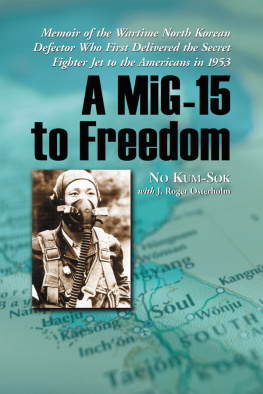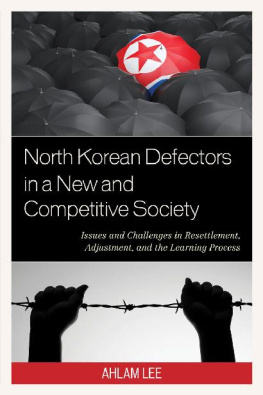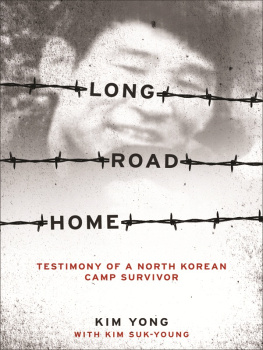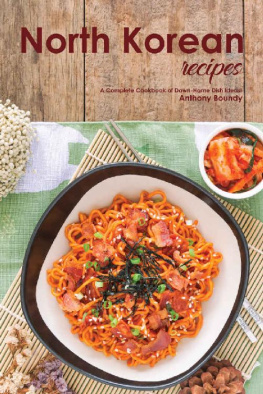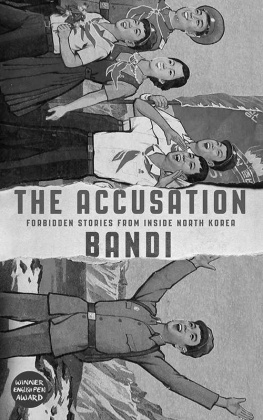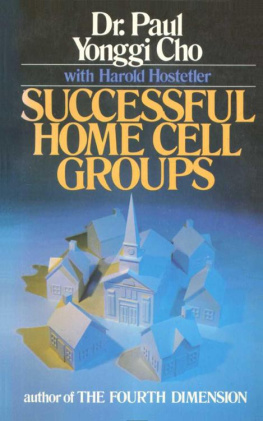Long Road Home

Columbia University Press is grateful to the Committee for Human Rights in North Korea for permission to use satellite images produced by DigitalGlobe and Space Imaging Asia and printed in the Committees 2003 report by David Hawk, Hidden Gulag: Exposing North Koreas Prison Camps. Columbia University Press Publishers Since 1893 New York Chichester, West Sussex cup.columbia.edu Copyright 2009 Columbia University Press All rights reserved E-ISBN 978-0-231-51928-1 Library of Congress Cataloging-in-Publication Data Kim, Yong, 1950-. Long road home : testimony of a North Korean camp survivor / Kim Yong with Kim Suk-Young. p. cm. Includes bibliographical references. ISBN 978-0-231-14746-0 (cloth : alk. paper) I. Kim, Yong, 1950- 2. Political prisonersKorea (North)Biography. 3. Concentration campsKorea (North) 4. Forced laborKorea (North) 5. Korea (North)Social conditions. I. Kim, Suk-Young, 1970- II. Title. HV9815.6.K56 2009 365.45092dc22
[B]
2008044140 A Columbia University Press E-book. CUP would be pleased to hear about your reading experience with this e-book at . References to Internet Web sites (URLs) were accurate at the time of writing. Neither the author nor Columbia University Press is responsible for URLs that may have expired or changed since the manuscript was prepared.
Contents
I met Kim Yong for the first time in the fall of 2004, when I led a group of Dartmouth College undergraduate students to a human rights conference hosted by LiNK (Liberty in North Korea) at Cornell University. As a rare survivor of a North Korean penal labor camp, Kim Yong appeared on stage, frail but dignified, and began to speak of his experience, mostly unknown to the outside world. Kim Yong calmly narrated the rise and fall of his fortune in North Korea and the unspeakable sufferings he and many other North Koreans had to endure. But his story was also about having hope in places where death seemed more desirable than life. Kim Yongs face, still carrying the scars of torture and pain, first remained calm but soon was deluged as the throbbing memories turned into two rivulets of tears that kept flowing endlessly back to the sea of memories.
This book started to write itself from that moment. Following the conference, I maintained close contact with Kim Yong, which soon developed into friendship with occasional phone calls and face-to-face conversations. We started to have more frequent conversations after I moved from New Hampshire to California in the summer of 2005. In the fall of the same year, I had a chance to invite him to Santa Barbara for an extended series of interviews, which yielded approximately twenty hours of recordings. This book is primarily a translation of the direct transcripts of those interviews conducted in Korean, but more importantly, it is a witness to one of the gravest tragedies to have taken place in our time.
Presenting a powerful glimpse inside the secret world of the North Korean gulag system, Long Road Home is the story of Kim Yong, the only known prisoner to have survived the atrocious labor camp No. 14 in Hamkyeong province, North Korea, otherwise completely secret from the outside world. Accused of being the son of an American spy, Kim spent six years working in a coal mine 2,400 feet underground, during which time he saw almost no sunlight. After months of meticulous planning, he made his dramatic escape by hiding in a coal train, which took him out of the camp. With help from old friends, he soon reached the border between North Korea and China. From there he went to Mongolia and eventually to South Korea. Kim came to the United States in 2003 and testified before the Human Rights Committee of the U.S. Congress, and his story has been featured by numerous international media outlets.
Kims life was marked by drama from the beginning. When he was three years old, his father was executed as a spy for the United States. To save him from the collective guilt attributed to the families of political wrongdoers in North Korea, Kims mother placed him in an orphanage under a false name. Without knowledge of this secret past, Kim grew up, entered the military, and eventually became a lieutenant colonel in the national security police. Like other military and security units and departments, his unit set up an income-gathering business, and Kim worked his way up to become a vice president in a trading company. As a foreign currency earner for the regime, he once submitted loyalty funds to Kim Jong-il, who in response sent a personal note promising to protect Kims family. Kim Yongs high-flying career ironically came to an end when he was recommended for a promotion, upon which his real identity was discovered during a meticulous background clearance check.
Before his imprisonment, Kim had an imported car, a luxury unheard of for most, and freedom to travel anywhere in North Korea, another privilege unimaginable in a country where ordinary people need to obtain permission even for a brief trip. This gave Kim unusual opportunity to access various sectors of North Korean society. His encounters with corrupt party officials, Japanese trade partners, illegal prostitutes, privileged citizens of Pyongyang, impoverished rural farmers, victims of apocalyptic famine, subhuman camp guards, suffering political prisoners, and the various people he met during his dangerous escape make his testimony a rich and multifaceted saga. His story presents not only invaluable information about the violation of human rights but also detailed ethnographic records of the North Korean peoples daily lives. While this book serves as one of the first narratives to provide a detailed account of life in the North Korean labor camps, it also captures a lively picture of North Korean people of all walks of life. Kims epic journey from North Korea to the United States is a dignified testament to the power of the human spirit to overcome even the darkest forms of oppression, torture, and ideological terror.
As translator and transcriber, I constantly had to make decisions to capture accurately the unique array of Kims experiences and bring them to life in English. Having grown up in South Korea in a relatively stable environment for most of my life, I had no firsthand experience of North Korea, let alone the extraordinary conditions Kim had to endure. Although Kim Yong and I share the same language and certain common grounds of Korean culture, and although we lived not too far away from each otherthe distance between Pyongyang and Seoul being only 120 mileswe seem to have existed in parallel universes. When he was enjoying full success as a foreign currencyearning officer in the National Security Agency in North Korea, I was a high school student consumed by the prospect of the college entrance exam in the south. When he was suddenly arrested one morning in 1993, I was passionately flipping through thick Russian novels in college. When he was fighting for his life every minute in the labor camp in 1996, I had left home to pursue graduate studies in the United States. How was I to overcome the profound gap between us, marked by differences in age, gender, and finally the ideology that divided the two Koreas into hostile regimes? How were our perspectives supposed to merge and create a singular narrative?
In interviewing Kim Yong, I tried my best to learn not only what happened to him but also how these events unfolded and what they meant for him. In presenting his responses here, I have tried to balance facts with reflections, history with contemplation as much as possible. However, due to the vast time span covered in this book, and due to the emotional toll the interview process took on Kim Yong, I was often not able to go much beyond simple facts. Thus, when I started transcribing the recorded interviews, I had to make a conscious decision: how to negotiate between the commitment to faithfully capture Kims cadence and voice and the impulse to embellish his story with literary flair. I discussed this very issue with Kim Yong many times, and we concluded that it would be best to transcribe Kims story from the original interviews with minimal dramatization or stylistic alteration, which might diminish the credibility of his story. At the same time, we also felt the necessity to polish the raw narrative to make it more readable, so long as this process would not interfere with the veracity of the events presented. For this reason, readers may feel the stylistic platitude embedded in the narrative alternating with more literary trimming, since that is a specific choice I made as transcriber of Kim Yongs recorded narrative. The result is a narrative told in a straightforward but honest voice, interwoven with infrequent emotional reflections, that recounts the events as they happened to a man who suffered the unimaginable. This book is meant to be a memoir based on the first-person narrative, which is why I refrained from overwhelming intervention as a translator and transcriber. I do strongly believe in the power of Kims original voice, with its minimal, unadorned style and simple integrity.
Next page
